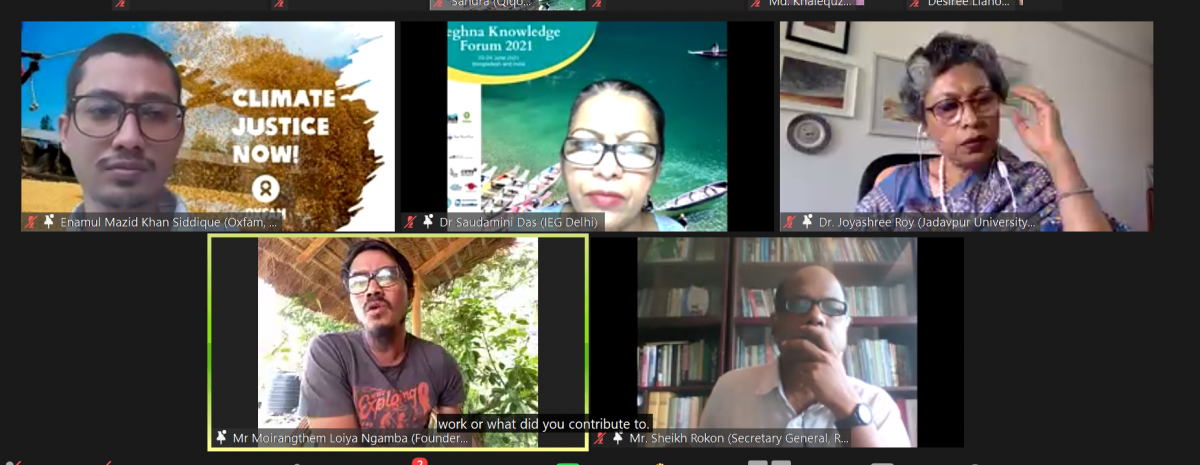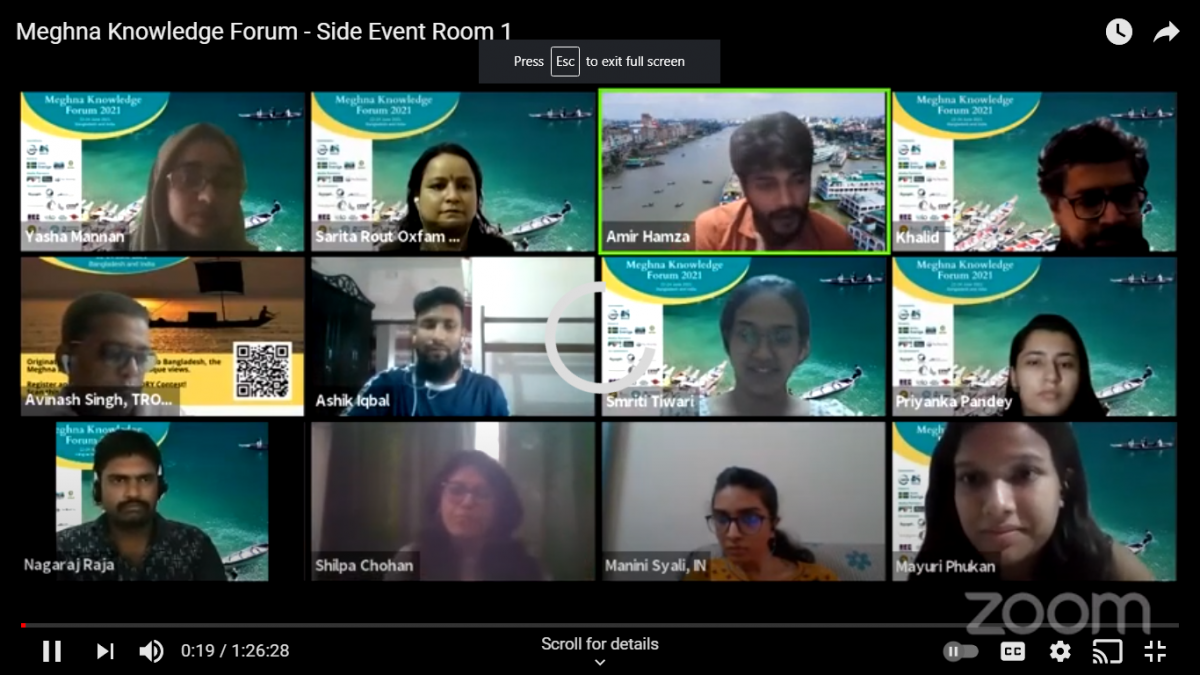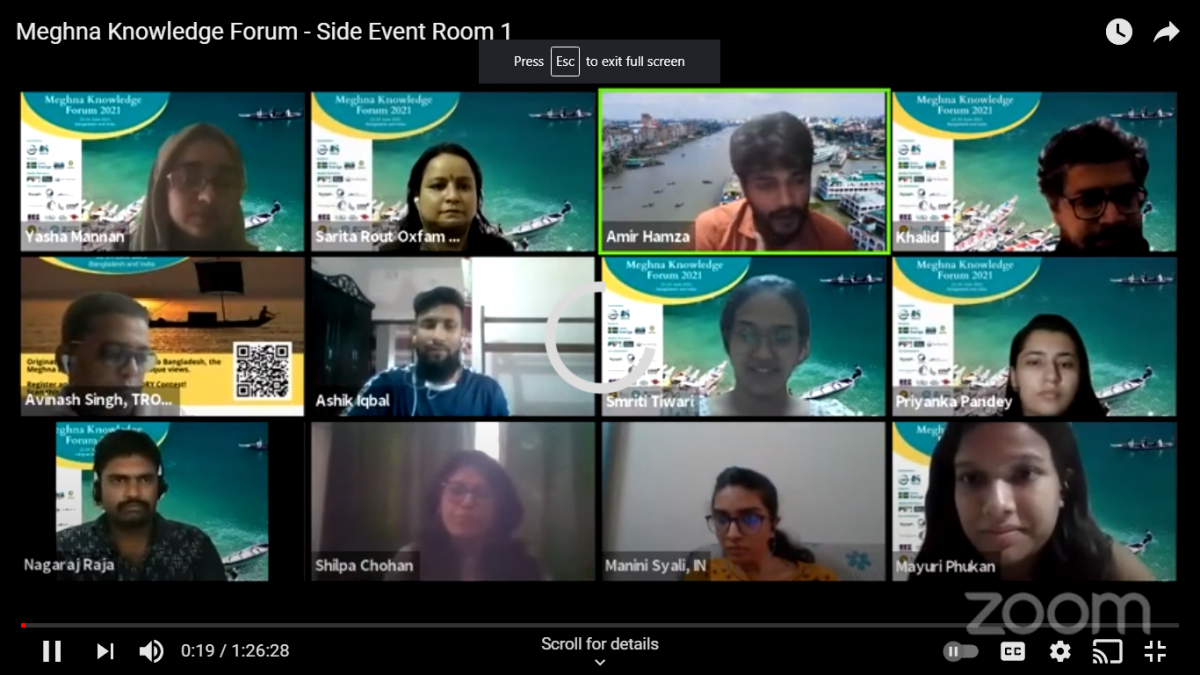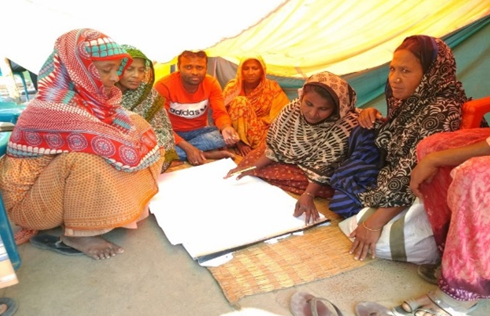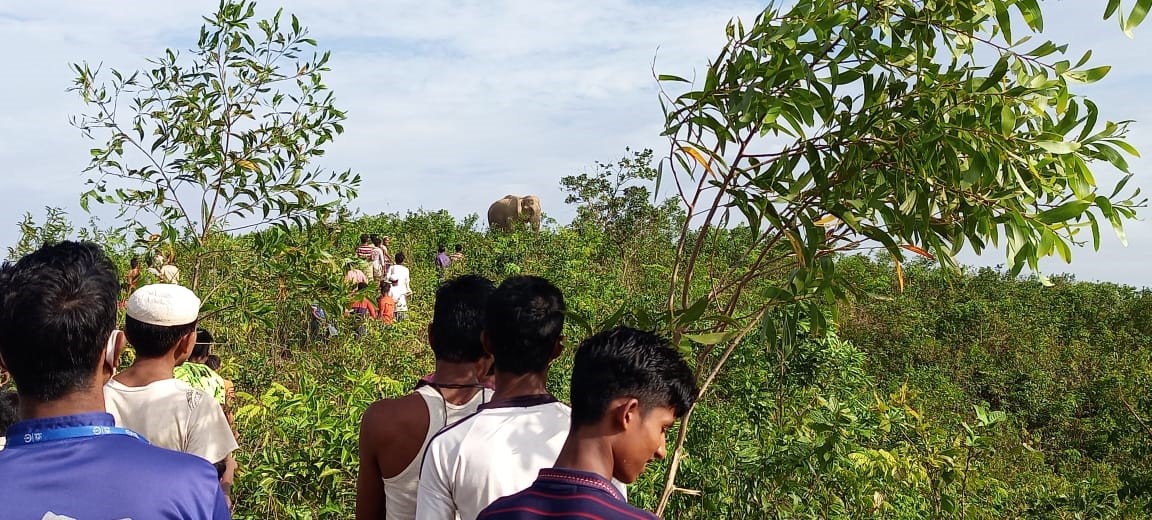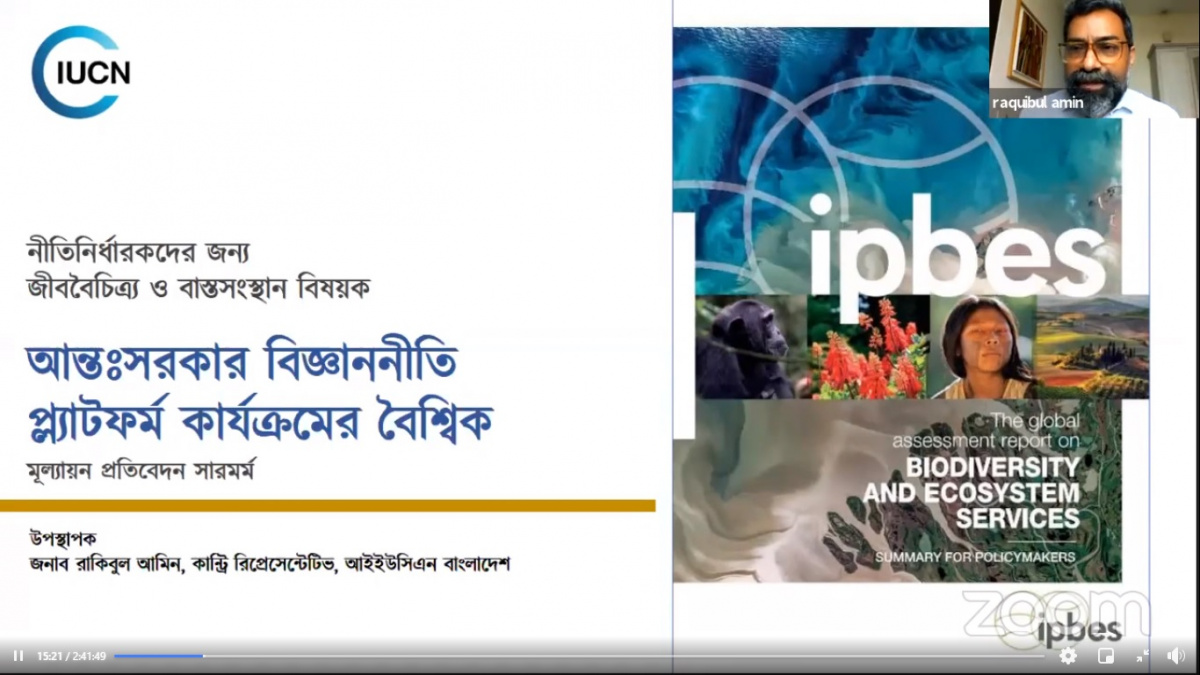Meghna Knowledge Forum (MKF) lays the foundation for a multi-stakeholder platform in the Barak-Meghna river basin
The first-ever knowledge forum on the Meghna river basin, shared by Bangladesh and India, concluded on Thursday, 24 June. More than 100 participants from across the Meghna basin joined the forum. The three-day forum laid the foundation of a multi-stakeholder knowledge exchange platform for the inclusive management of the Meghna river basin.
Designed as a virtual event, the forum’s objective was to facilitate partnerships among different stakeholders and sectors to address knowledge gaps in the implementation of an Integrated Water Resource Management (IWRM) in the Meghna river basin.
Highlighting the significance of Barak-Meghna river system, Dr. Rajdeep Roy, Member of Parliament, India (Silchar, Assam) said, “Barak river is rich in biodiversity and more than 100 species of fish, including the Ganges Dolphin, listed as endangered species have been recorded from Barak river in India.” He also said, “The population of the Barak valley has increased more than three times in the last 30-40 years, this, has put pressure on the natural resource and its utilization.”
The forum included 10 different thematic sessions and more than 40 speakers from diverse sectors, including from the Garo and Kashi indigenous communities. The speakers shared their perspectives on the wide range of issues linked to culture, water governance, climate change and inland navigation.
“There are 276 shared river basins across the world, Meghna basin of one of them,” said Mr. Saber Hossain Chowdhury, MP and Chairperson of Parliamentary Standing Committee in Ministry of Environment, Forest and Climate Change, Bangladesh. He further reiterated, “Through MKF 2021, we hope to move from a situation of conflict to cooperation, as the forum dialogue is linked to creation and enhancement of the benefits from the Meghna basin through transboundary cooperation.”
The forum also highlighted the need to strengthen the governance of the basin, and make it more inclusive and responsive to the needs and aspirations of the indigenous community. It also showcased examples of community-led nature-based solutions supported by governments, that needs to be documented, upscaled and replicated across the basin.
For example, the Government of Meghalaya, in India, is implementing several initiatives to strengthen the community leadership for conservation of the natural resources.
“More than 70 community managed fish sanctuaries have been established across Meghalaya, and many of these are located in transboundary tributaries of the Meghna river basin, such as the Someshwari or Simsang river originating from Garo hills in India. The initiative led to increase in the fish population and improvement in water quality,” shared Dr. P. Shakil Ahammed, Principal Secretary, (Water Resources, Fisheries, Food & Civil Supplies). Mr. Shakil also emphasised the need to assess the downstream benefits to the people in Bangladesh from such initiatives, as this will help build trust between stakeholders from across the border.
Overall, the forum provided inspirational messages, such as the need for cooperation and moving from rivers of tensions to rivers of comfort. The need for harmonization of agenda of the two governments for ecology economy and community based management.
Highlighting the increasing significance of smaller shared rivers (other than Teesta and Ganges) in Bangladesh-India water dialogues, Mr. Kabir Bin Anwar, Senior Secretory, Ministry of Water Resources, Government of Bangladesh, informed the forum, “Through the Joint River Committee (JRC), Bangladesh and India have identified eight smaller shared rivers for holistic management, for improved pollution control, enhancement of community livelihoods and better navigability.” He further added, “The focus on MKF 2021 on livelihoods and biodiversity enhancement is thus aligned to the governments’ agenda and directly contributes to the bilateral efforts made by the two governments towards the holistic management of the basin.”
The forum emphasised the need to engage stakeholders from all levels in the management of the basin, and that people-to-people cooperation will lead to robust governance at all levels.
“Meghalaya Basin Development Authority (MBDA) a unique institution established to facilitate integrated development of the river basin within the state - the only one of its kind operating in the Meghna basin” said Mr. Sampath Kumar, CEO, Meghalaya Basin Development Authority (MBDA) & Project Director Community Led Landscape Management Project (CLLMP), India (Shillong). He highlighted the important role of river basin organization in facilitating people participation. He said, “The CLLMP programme of MBDA is building social capital for the management of natural resources in the Meghalaya, the programme is working through the village-based committee, in which 50% of the members are local women. The committee makes landscape management plans and it is approved and financially supported by CLLPM project.”
The forum also highlighted the important role of recently established bilateral mechanisms, the Joint Consultative Committee (JCC), under the 2011 Framework Agreement of Bangladesh and India.
Mr. Malik Fida A Khan, Executive Director, Center for Environmental and Geographic Information Services, Bangladesh, said, “The article 6 of Framework Agreement for Cooperation between Bangladesh and India, mandates the two countries to work together for the preservation of ecosystem of the shared rivers. This provides an entry point for strengthening the discourse on the formation of Meghna River Basin Organization (RBO), which needs to ensure multi-level coordination for the sustainable management of the Meghna basin.”
The Guest of Honor for the forum’s valedictory session, Mr. M. A. Mannan, Minister of Planning, Bangladesh, said “there is no alternative to cooperation and by working together, Bangladesh and India can make the Meghna river basin, one of the most vibrant regions of South Asia.”
To ensure policy uptake of the forum outcomes, the representative of the Ministry of Jal Shakti, India, Mr. R. R. Sambharia, Senior Joint Commissioner, Ground Water and Flood Management, said, “IUCN, to share the result of the forum with the Joint River Commission (JRC) of Bangladesh and India, and its dissemination to the relevant government departments at the state level.”
To maintain the momentum created through the MKF 2021 and to attract international donor agencies to the Meghna river basin, IUCN will disseminate the forum outcomes at the bilateral and global platforms, such as IUCN World Conservation Congress in Marseille France planned in September 2021.
It is estimated that more than 50 million people in Bangladesh and India depend on the ecosystem services provided by the basin, including indigenous forest-dependent communities such as the Khasi, Garo, and Jaintia; and the fishermen and farmers depending on the extensive wetlands (Haors) of Sylhet region in Bangladesh.
The forum was convened by IUCN in partnership with more than 15 different organizations, from Bangladesh and India.
About the Meghna Knowledge Forum
The forum was organized under the global flagship programme of IUCN, Building River Dialogue and Governance (BRIDGE) in the Ganges-Brahmaputra-Meghna (GBM) river basins funded by SIDA, through Oxfam Transboundary Rivers of Asia (TROSA) programme.
Since 2018, IUCN has been facilitating multi-stakeholder dialogues and joint research in the Meghna river basin, with the aim of strengthening the conservation and sustainable management of natural resources in the basin through inclusive, basin-wide governance.
The BRIDGE GBM is part of the global flagship programme, implemented by IUCN in more than 15 different shared river basins across the world. The programme applies Hydrodiplomacy and Technical cooperation as the entry points to build consensus and common vision for the integrated management of the basin directly contributing to the SDG 6, target 6.5 (IWRM in shared river basins).
Meghna Knowledge Forum 2021 Partners
Convenors
 Photo: © IUCN
Photo: © IUCN
Co-Convenors
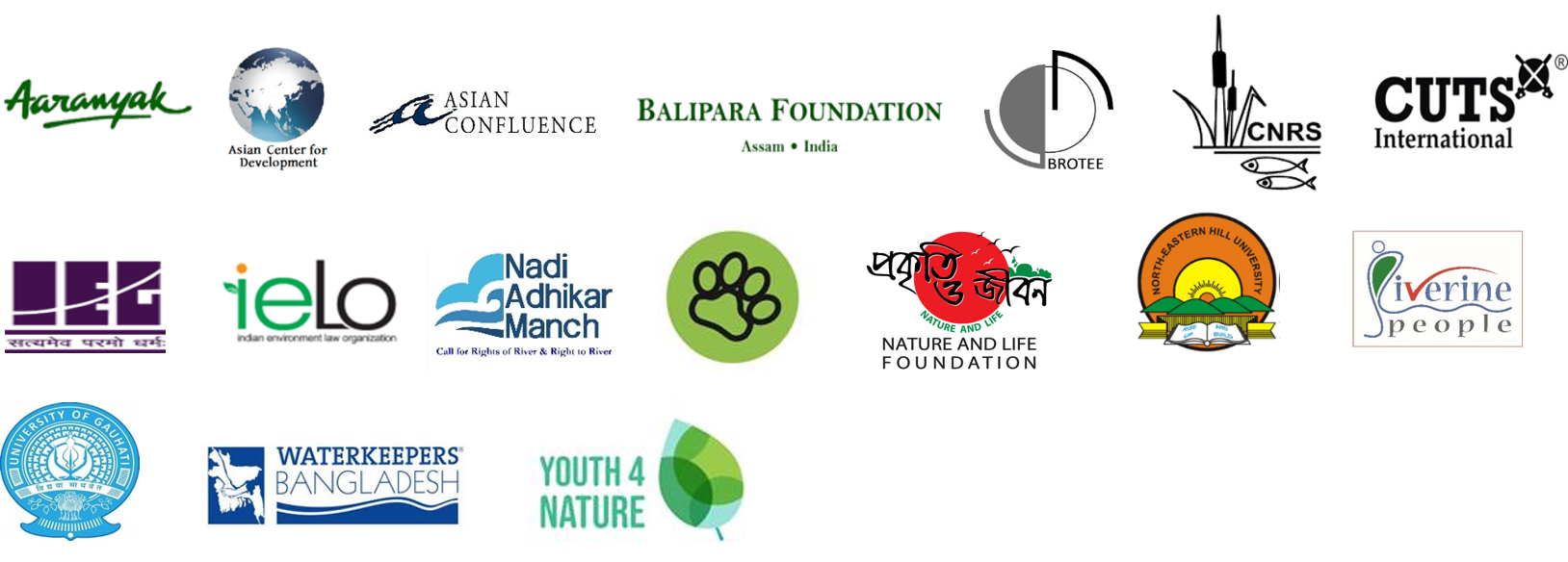 Photo: © IUCN
Photo: © IUCN
Media Partners
 Photo: © IUCN
Photo: © IUCN
Donors
 Photo: © IUCN
Photo: © IUCN

